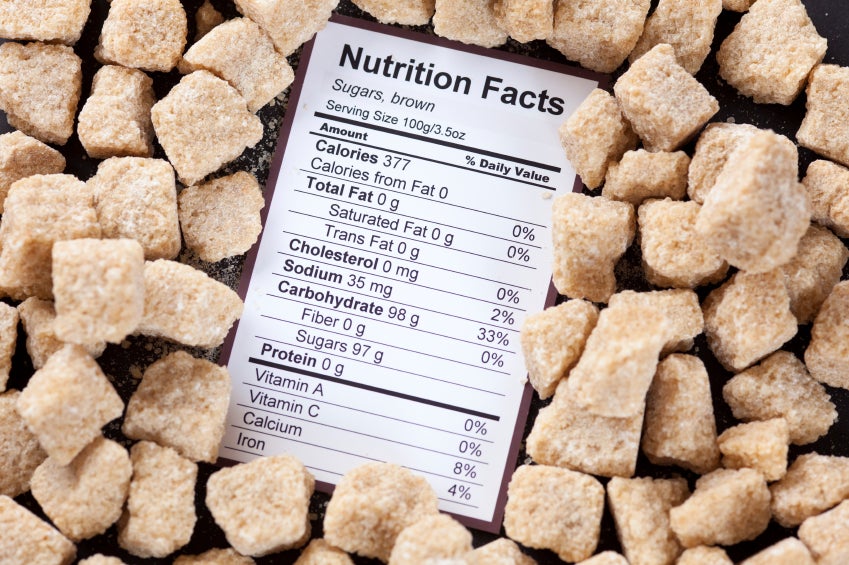
Bailey Bariatrics dietitian Rene Norman, RD/LD, shares insight into how added sugar infiltrates our diet. She also provides a recipe for Valentine’s Day for both pre-op and post-op patients to enjoy.
Too much added sugar in our diets is linked to a higher risk of developing heart disease, belly fat, cancer, liver disease, shortened life expectancy and speeding up the aging process. After bariatric surgery, too much sugar can lead to dumping. Sugar dumping symptoms include shakiness, sweating, heart palpitations and diarrhea. The naturally occurring sugars in milk and fruits aren’t linked to poor health, because these sugars are packaged with healthy vitamins and minerals. Fruit also provides health protecting fiber.
Finding out what the added sugars are in a food you choose is tricky. At this time, the Nutrition Facts Label does not require added sugar to be listed.
Sugar: Not Just a Sweet Nothing
We are born with a preference for sweet tastes. However, with sugar comes calories without any fiber, vitamins or minerals. Sugar is basically empty calories.
Natural Sugars vs Added Sugars
- Naturally occurring sugars are primarily found in fruits and milk. The sugar in fruit is fructose. The sugar in milk is lactose.
- There are a small amount of sugars found in vegetables and grains.
- The American Heart Association recommends that women can have no more than six teaspoons of added sugar per day. Men can have up to eight teaspoons of sugar.
- A teaspoon of sugar equals four grams of sugar. A 12-oz can of regular pop contains ten teaspoons of sugar. That’s almost ¼ cup of sugar!
Other Names for Sugar
When you read the ingredient list, look for words like syrup (corn, high fructose, maple), agave, molasses, beet sugar, brown sugar, turbanado sugar, juice (cane, fruit), powdered sugar, raw sugar, maple sugar, date sugar, honey and anything ending in –ose (maltose, dextrose, glucose, fructose). These are all types of sugar.
When you see these words in the ingredient list, look for foods that have sugar listed after the third or fourth ingredient. When you see several sugar ingredients, look at the total amount of sugar. Decide if it’s worth it to eat that food.
Sugar Alcohols
These have less impact on your blood sugars. They are more slowly digested than sugar. Sugar alcohols have anywhere from two to four calories per gram. If your weight loss stalls and you are eating a lot of “sugar free” foods with high amounts of sugar alcohols, you are getting more calories than you think. Caution: eat too many and you may find they can have a laxative effect!
Alternative Sweeteners
- Artificial sweeteners include Splenda (sucralose), Sweet ‘N Low (saccharin), NutraSweet (aspartame), Sweet One (acesulfame potassium) and Neotame.
- Stevia is extracted from the stevia plant and is considered a natural sweetener.
- Monk fruit is the newest natural sweetener on the market.
How do I find the amount of added sugars in a food?
One way to find out what the added sugars are is to compare similar products:
Surprising, isn’t it? Check your fridge or pantry and calculate the sugars. Is all that sugar worth it?
With Valentine’s Day around the corner, my mind starts thinking about favorite treats like cheesecake. This dessert is typically loaded with unhealthy fat and sugar. Here is a recipe for a healthier version of this dessert and provides a good source of protein and some calcium. This recipe can be used before the pre-surgery liquid diet begins and after surgery when you can have soft and pureed proteins. This treat is not only better for your heart, but it’s also good for your muscles and bones.
Greek Yogurt Cheesecake Whip
Equipment:
- Medium mixing bowl
- Hand or tabletop mixer
- Serving dish or container that will hold ½ cup (4 oz)
Yield: 6 (½ cup) servings
Adapted from Spark People Recipes
Nutrition Information per serving:
- Calories: 106 calories
- Fat: 0 grams
- Protein: 10 grams
- Carbohydrate: 12 grams
- Calcium: 85 mg
